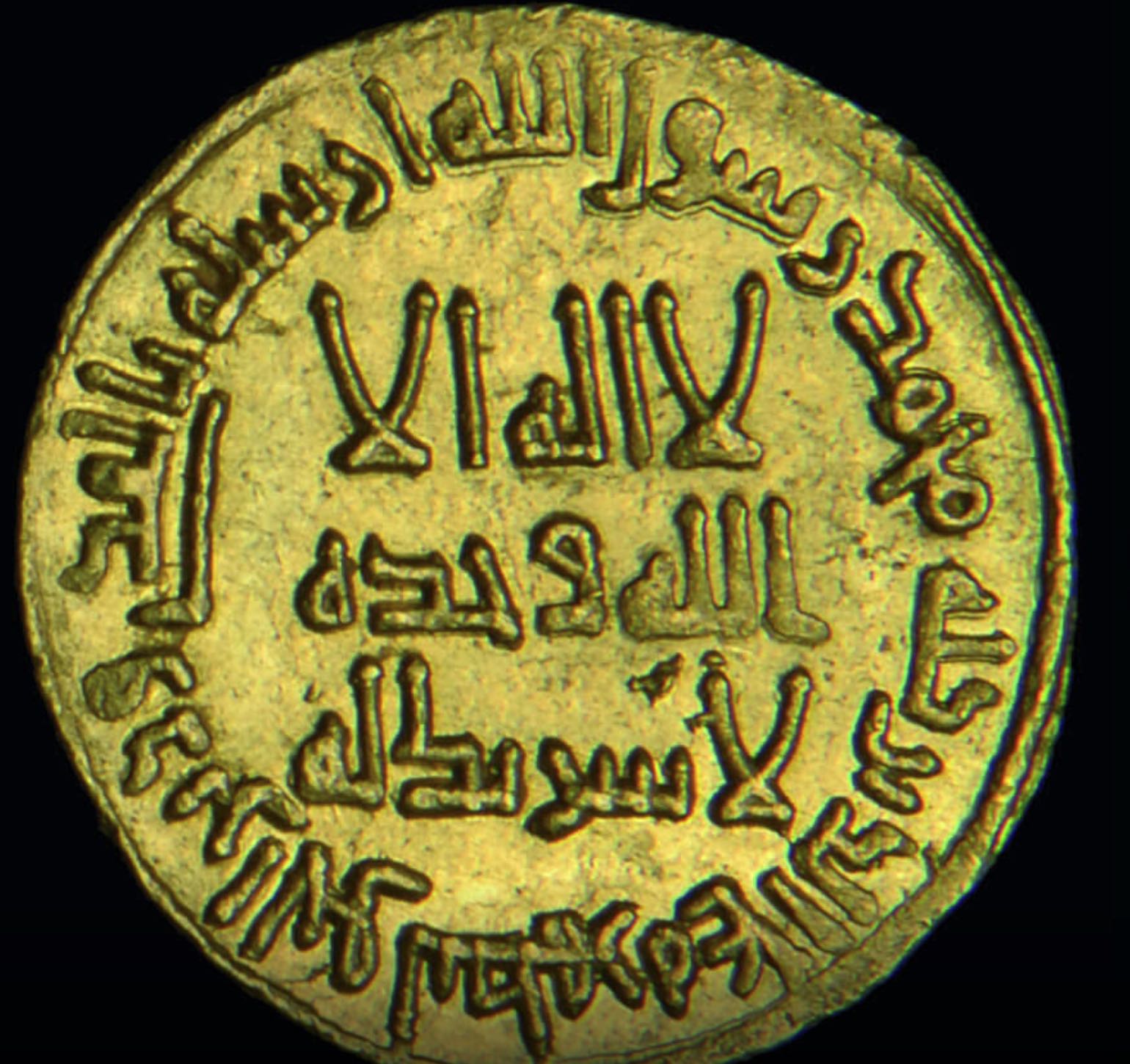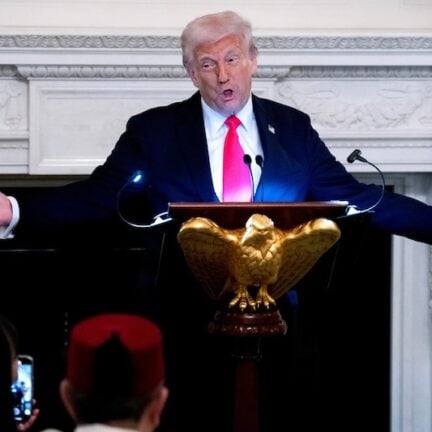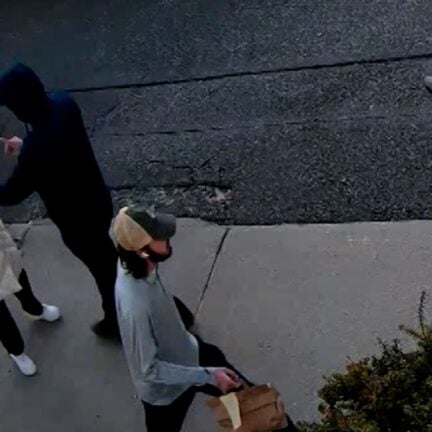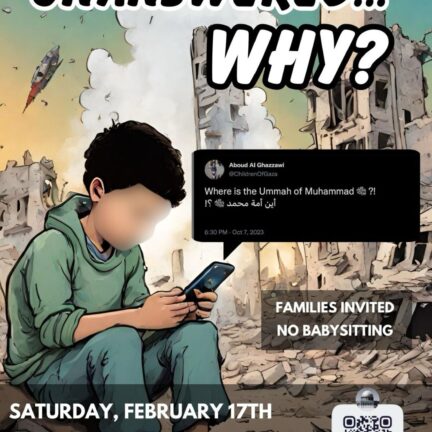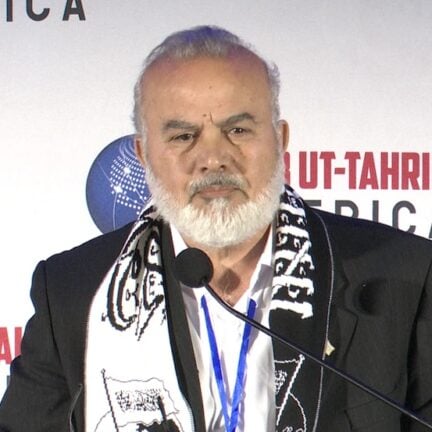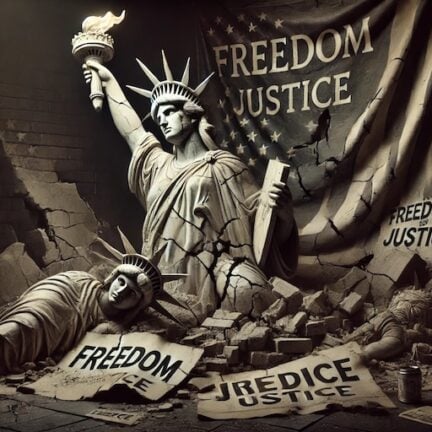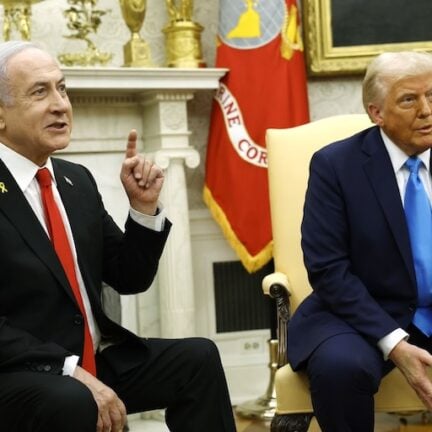Question:
Bismillah Ar-Rahman Ar-Raheem
Assalam Alaikum Wa Rahmatullah Wa Barakatuh our Ameer. I ask Allah (swt) to guide your steps and make Islam dominant by your hands.
My honorable brother, I raise some questions to you, hoping that Allah (swt) will enlighten your path.
As for the first question:
In the book, The Funds in the Khilafah State, the edition issued in the year (1425 AH – 2004 CE), page 132, the last paragraph in the chapter of “The property of apostates” it stated: “Abu Bakr and the Sahabah fought the apostates and would only accept from them either their complete return to Islam…” However, on page 189, the last paragraph in the chapter on “The Rule of the Witholder of Zakat” reads: “If a group refuses to pay Zakat to the State, and reject the obligation of obedience in paying Zakat to it and became strong and entrenched in an area, the State will fight them as rebels like Abu Bakr and the Sahabah did with those who denied the Zakat”.
Are the two incidents separate? If the incident is one, then how do we explain it at one time as “fighting apostates” and at another as “fighting the rebels”? The reality is that the incident is one, and it is not correct to have multiplicity of rulings?
The second question:
And it is related to the reality of the “Properties Seized by Influence and the Rulers Power” mentioned on page 119, so due to the permissibility of the state’s allotment of its property to the members of the subjects, are the relatives of the rulers and state employees absolutely prohibited from the allotment because of this kinship even if they are among the needy? If it is permissible as their right to be given the allotment, then what is the boundary between what is permissible and what is not permissible?
The third question:
There is a difference in dealing with the obligatory paper notes circulated with the countries with which we have a treaty of peace and good neighbourliness, as these obligatory paper notes are still valid and have purchasing value, and between the obligatory paper notes circulated among people in the place that will be the centre of the Khilafah State; Since the validity of these mandatory paper notes has expired and they no longer have purchasing power, the question is how will the state deal with these paper knotes? Will it exchange what is in people’s hands for the new currency that is based on gold and silver? If so, does this not mean that people will be given gold and silver in exchange for paper notes that have no value and will be destroyed?
Your brother Muhammad Al-Ahmadi
Answer:
Wa Alaikum Assalam Wa Rahmatullah Wa Barakatuh,
First: The answer to the first question:
1- After the death of the Prophet (saw), Arab tribes apostatized from Islam, and the Muslims fought them because they apostatized from Islam, and fighting them is what is called fighting the apostates… However, there were some tribes that did not announce their apostasy from Islam, but rather refused to give zakat to Abu Bakr as the caliph, according to how they interpreted some Shariah texts. There was a well-known dispute between the Companions regarding fight them, so Abu Bakr, may Allah be pleased with him, insisted on fighting them because they refused to pay zakat to the state, and some of the Companions, including Omar, may Allah be pleased with them all, initially refused to fight them, because in their view they are Muslims, but after discussion with Abu Bakr, may Allah be pleased with him, they were convinced of his opinion of the necessity of fighting them. Fighting them is called by some as fighting those witholders from zakat, to differentiate between them and the apostates. Abu Bakr fought them according to what we outweigh in the book, The Funds in the Khilafah State, describing them as rebels who revolted against the state without leaving Islam, that is, we outweigh that they were not apostates, rather they were rebels. Ibn Katheer mentioned a part of this incident in his book Al-Bidayah Wal Nihayah as follows:
[Al-Bidayah Wal Nihayah (6/ 342)The chapter on Al-Siddiq’s response to fighting the people of apostasy and those whitholders to pay zakat. It has already been mentioned that when the Messenger of Allah (saw) died, many Arab areas apostatized, and hypocrisy arose in Medina. Banu Hanifa, and a lot of people in Yamama sided with Musaylimah the liar. Banu Asad and Watai’, and many people as well followed Tulayha al-Asadi. He also claimed prophethood as Musaylimah the liar claimed it. Arab delegations advance to Medina. They acknowledge prayer and refrained from performing zakat, and among them are those who refuse to pay it to As-Siddiq, and it is mentioned that among them are those who argued using Allah’s (swt) saying:
[خذ من أموالهم صدقة تطهرهم وتزكيهم بها وصل عليهم إن صلاتك سكن لهم]“Take, [O Muḥammad], from their wealth a charity by which you purify them and cause them increase, and invoke [Allāh’s blessings] upon them. Indeed, your invocations are reassurance for them” [At-Tawba: 103]. They said: We do not pay our zakat except to the one whose prayer is a reassurance for us. And some of them said: We obeyed the Messenger of Allah when he was among us, so how strange, what is the matter with to the leadership of Abu Bakr? The Companions spoke to As-Siddiq to leave them and what they are upon in preventing zakat, and to get along with them until belief is established in their hearts, then after that they pay zakat. As-Siddiq refused and rejected it. The group narrated in their books, except for Ibn Majah, on the authority of Abu Hurairah that Omar Ibn Al-Khattab said to Abu Bakr: ‘O Abu Bakr, how can you fight the people when the Messenger of Allah [saw] said: “I have been commanded to fight the people until they say La ilaha illallah, and if they say it, their blood and their wealth will be safe from me except for a right that is due.?’ Abu Bakr said: Even if they withhold a young goat. In a narration: “if they withhold from me a rope that they used to give to the Messenger of Allah, I will fight them for wiholding it. Zakah is the compulsory right to be taken from wealth. By Allah, I will fight whoever separates prayer and Zakah. ‘Umar said: ‘As soon as I realized that Allah has expanded the chest of Abu Bakr to fight them, I knew that it was the truth’…] End.
2- Thus, the first context that we mention in the book, The Funds in the Khilafah State, in the chapter “The Property of Apostates” is about the apostates whom Abu Bakr, may Allah be pleased with him, fought because they departed from Islam. In the chapter, “The Property of Apostates” in the book, The Funds in the Khilafah State, it states the following:
[If a group apostatises, becoming powerful in a land, establishing their own ruler who rules between them, then they are considered as of Dar ul Harb, thus losing the protection for their blood and property. It is obligatory to fight them as they become like Kuffar in origin, in fact, they are worse. It is of a greater priority to fight them for the Kuffar must accept Islam, peace or Jizya. As for apostates, nothing is accepted from them except Islam; peace and Jizya are not accepted from them. Abu Bakr and the Sahabah fought the apostates and would only accept from them either their complete return to Islam or war. The Prophet said: «مَنْ بَدَّلَ دِينَهُ فَاقْتُلُوهُ» “You should kill whoever changes his Deen.” Narrated by Bukhari and Muslim].So, these people were fought by Abu Bakr and the Companions, may Allah be pleased with them, describing them as kuffar who had apostates from Islam, and they did not accept anything from them except that they return to Islam or that they be killed.
3- As for the other place in the book, The Funds in the Khilafah State, it is in the chapter “The Rule of the Witholder of Zakat”, which is his saying: [If he denies paying it while believing in its obligation, it is taken from him by force. If a group refuses to pay Zakat to the State, and reject the obligation of obedience in paying Zakat to it and became strong and entrenched in an area, the State will fight them as rebels like Abu Bakr and the Sahabah did with those who denied the Zakat]. So here the discussion is about those who withheld zakat and who did not turn away from Islam, so Abu Bakr’s fight against them was not a fight of apostasy, but rather a fight of transgression and rebellion against the state. They are not the apostates mentioned in the previous point.
4- By the way, we have detailed the second place you are asking about in the chapter “The Rule of the Witholder of Zakat” that puts matters into perspective, and shows the difference between the two cases mentioned above, and I quote the full text for you from the book, The Funds in the Khilafah State, page 182, the Word file:
[The Rule of the Withholder of Zakat
If the Muslim possesses the Nisab of wealth in which Zakat is obligatory, it is obligatory upon him to pay its Zakat. If he refuses to give its due right, it is a grave sin as was mentioned in the Ahadith which came regarding the subject of Sadaqah properties in terms of severely condemning those who don’t pay the Zakat on their wealth.
The reality of the one who refuses to pay Zakat is examined. If he denied paying it due to his ignorance of its obligation, such as the people who are usually ignorant of the same rule, then he is informed of its obligation. He is neither declared a Kafir nor is he punished, due to his excuse, and the Zakat is taken from him.
If he refuses, and denies its obligation, he is an apostate and is treated like an apostate. He is asked to repent thrice; if he repents and is remorseful, it is taken from him and he is left free. If not, he is killed because the obligation of Zakatis known from the deen by necessity. The evidences for obliging Zakat are clear in the Book, Sunnah and Ijma’a, such that they can scarcely be hidden from any Muslim.
If he denies paying it while believing in its obligation, it is taken from him by force. If a group refuses to pay Zakat to the State, and reject the obligation of obedience in paying Zakat to it and became strong and entrenched in an area, the State will fight them as rebels like Abu Bakr and the Sahabah did with those who denied the Zakat.] End.
So the Withholder of Zakat whom Abu Bakr fought according to this text are not those who abstained from zakat denying its obligation, otherwise they would have been apostates, and among the apostates at that time there were those who denounced zakat, but the Withholder of Zakat were those who believed that zakat was obligatory, but they did not accept paying it to Abu Bakr, i.e., to the state. They revolted against the state and were rebels.
I hope this matter is clarified for you.
Second: The answer to the second question:
You are asking about the following place in the book of The Funds in the Khilafah State:
[Properties Seized by Influence and the Rulers Power
These are the properties and lands seized by the rulers, governors, officials, their relatives or civil servants from the State’s or people’s properties and lands by coercion, authority and domination due to the ruler’s power and position. Any property seized in any of these ways, whether of the State’s or people’s properties and lands, is considered illegally acquired and is not legally owned. All such seizures are considered injustice (Zulm) and injustice is Haram and darkness on the Day ofJudgement.It is also considered illicit property (Ghulul) that belongs to Hellfire.The Prophet said: «مَنْ أَخَذَ مِنَ الْأَرْضِ شَيْئاً بِغَيْرِ حَقٍّ، خُسِفَ بِهِ يَوْمَ الْقِيَامَةِ إِلَى سَبْعِ أَرَضِينَ» “Whoever takes anything from land illegitimately he will be sunk on the Day of Judgement down to seven earths.” In another narration: «مَنْ أَخَذَ شِبْراً مِنَ الْأَرْضِ ظُلْماً، فَإِنَّهُ يُطَوَّقُهُ يَوْمَ الْقِيَامَةِ مِنْ سَبْعِ أَرَضِينَ» “Whoever takes a hand span ofland unjustly it will be put around his neck as a collar ofseven earths on the Day ofJudgement” (narrated by the two Shaikhs).
From Aiesha, she said “that the Prophet said: «مَنْ ظَلَمَ شِبْراً مِنَ الأَرْضٍ، طَوَّقَهُ اللهُ مِنْ سَبْعِ أَرَضِينَ» “Whoever takes unjustly a hand span ofland Allah will put around his neck a collar of seven earths.” (Agreed upon)
If the seized properties and lands are people’s properties whose owners are known, then they must be returned to them. If their owners are not known, then they must be placed in the Bait ul-Mal. If they are of the State’s properties, then they must inevitably be returned to the Bait ul-Mal. When ‘Umar bin Abdul Aziz assumed the Khilafah, he returned all properties and lands seized by Banu Umayyah from the State’s or peoples’properties to the Bait ul-Mal of the Muslims, except those he returned to their owners, as they were known. He also divested Banu Umayyah of their allocated land allowances and all they had seized, as he considered that they seized them by the force of their authority and by illegitimate means, and were thus not legally owned. He actually began with himself, surrendering all his funds, properties, riding animals, perfumes and chattels, which he subsequently sold for 32,000 Dinars, and placed them in the Bait ul-Mal] End.
It is clear from this text that the discussion is about property that is seized by coercion, authority and domination due to the ruler’s power and position, meaning that whoever obtains this money, he acquires it because he has power and authority or because he is close to the one of power and authority, that is, they are the people who acquire people’s money and state money because there is a power that makes them seize this property.
As for the relatives of the rulers, if they had a need, then they were given money to meet their needs, just as other subjects are given to those with needs, and their kinship with those in power had no help or interference in giving them property unjustly; if so, it is permissible to give them as the rest of the subjects in need without preferring these relatives over others because of their kinship.
If there are suspicious cases that are not clear whether they acquired property from the state because of their kinship with the rulers and officials, or because they deserve it according to Shariah, if this is suspected, then their matter is referred to the Court of Grievances (Al-Mathalim) to judge on them after examining the reality of the situation, and the decision of the Court of Grievances is binding on the rulers if the ruling was to return what was allotted or given to them, because it was a matter of appropriation by domination and the power of the ruler.
Third: The answer to the third question:
As for how to deal with the obligatory paper currency when the Khilafah is established, we are studying an executive regulation to deal with the articles of the constitution, including Article 166, which states: [Article 166 (English pdf, Article 162): The State issues its own currency, which is independent of all foreign currencies]. And Article 167 (English pdf, Article 163): The currency of the State is to be restricted to gold and silver, whether minted or not. No other form of currency for the State is permitted. The State can issue coinage not of gold or silver provided that the treasury of the State (bayt ul-maal) has the equivalent amount of gold and silver to cover the issued coinage. Thus, the State may issue coinage in its name from brass, bronze or paper notes etc. as long as it is covered completely by gold and silver].
Accordingly, we will announce it at the appropriate time, after completing the executive regulations in all its aspects, Allah willing.
Your Brother,
Ata Bin Khalil Abu Al-Rashtah
7 Muharram 1445 AH
25/7/2023 CE

